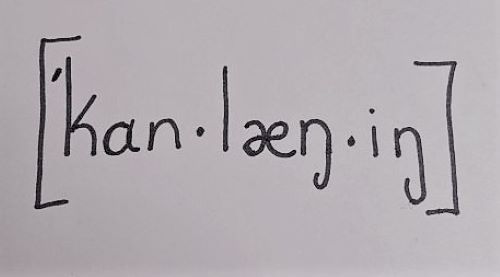Many sci-fi and fantasy stories center around characters who do not speak a language currently found on Earth. Some authors choose to bypass these foreign languages by employing some form of translation technology or magic, but many prefer to have their characters speak in their native tongues. Some of the most famous examples of this include The Lord of the Rings and Game of Thrones. While Tolkien was basically a linguist (in his time it was known as philology), and therefore had the capacity to create full, rich languages for his books, Martin made up words that sounded nice at the time, but which were not part of the larger structure. This isn’t necessarily a bad thing, but when we examine the fans of The Lord of the Rings, one of their favorite pastimes is learning, writing, and even speaking Elven. This has led to the creation of other books that center around the languages used in these worlds, like Na’vi and Klingon. These examples help show why a fully fleshed-out language, often known as a “conlang,” is good for the fans, the author, and the publisher, and why authors should work with a conlanger.
One important thing to note is that a conlanger and a linguist are different, though they often overlap. David J. Peterson is probably the most famous example of this. He has an M.A. in Linguistics from the University of San Diego and is famous for his work on Dothraki for the Game of Thrones TV series. While not every conlanger has a linguistics background, all of them share a great passion for language.
With any professional partnership, you want to make sure your conlanger is someone that you are comfortable working with. You want to look for someone who is willing to show you a sample of their work, and then ask yourself a few questions: Do you like the sounds that they use? Do you like the languages they came up with? Do you think that you can work together to get the sound you’re looking for?
It’s also important to consider your audience. To native English speakers, Dothraki can sound harsh and intimidating, but it might sound pretty and sweet to someone whose native language contains similar sounds and inflections. A skilled conlanger will help you figure out the specific sounds you want for your language.
Creating a fictional language is much easier to do while the book is still being written or before there are solid decisions about the languages. David Peterson talks about his experience working with Dothraki in his book The Art of Language Invention, specifically the work he had to do with finding and analyzing the fifty-six Dothraki words and names that already existed in the first three books. It’s quite a challenge when the author is looking for a specific sound, but has already created words that may not fit in with the finished project.
So how do you go about hiring someone to create a language for your book? My first recommendation is the job board on the Language Creation Society website; the LCS is a membership-based community of conlangers based out of U.C. Berkeley whose president is none other than David Peterson. You could also look at the conlang page on reddit to see if any conlang authors are interested in working with you. If neither of these places speak to you, you can always post on Craigslist or a similar job board.
While there isn’t a one-stop shop for hiring a conlanger, I believe it is worth the effort to find someone with the skills and knowledge to make your world feel a bit more full and rich, which is a huge benefit when it comes to future publishing perspectives. Conlangers are a professional resource that authors can use to increase the value of the product they’re creating, so I encourage authors to use them to their fullest potential, not only for their own benefit, but for the benefit of the conlanger and the publisher. More importantly, readers will appreciate the extra love and care that you put into your stories.

